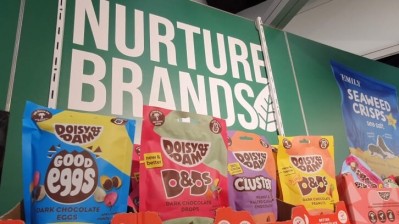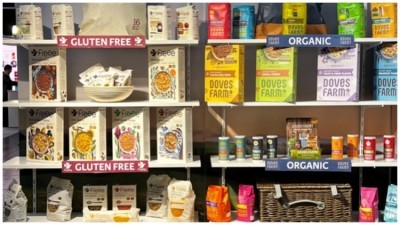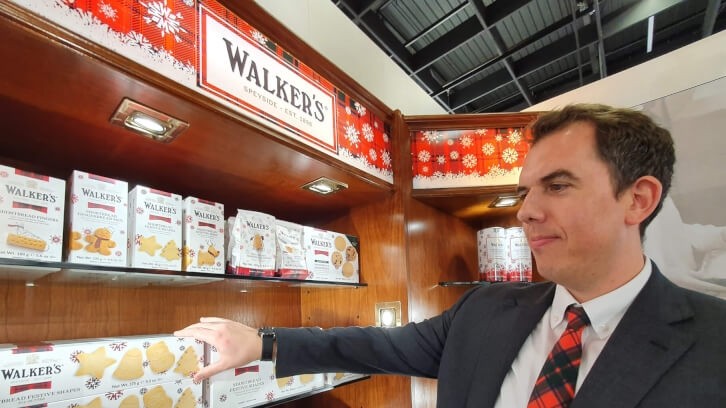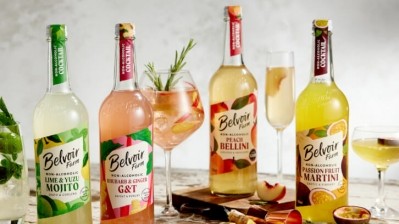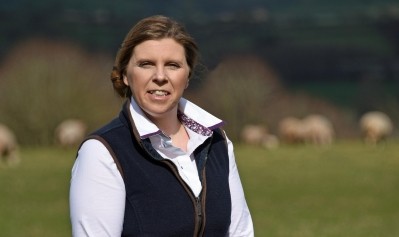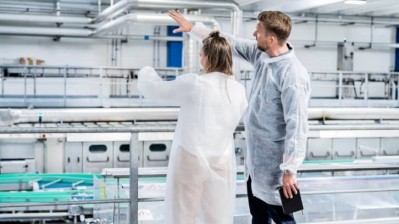Long read
How are UK food and drink producers achieving sustainable growth?
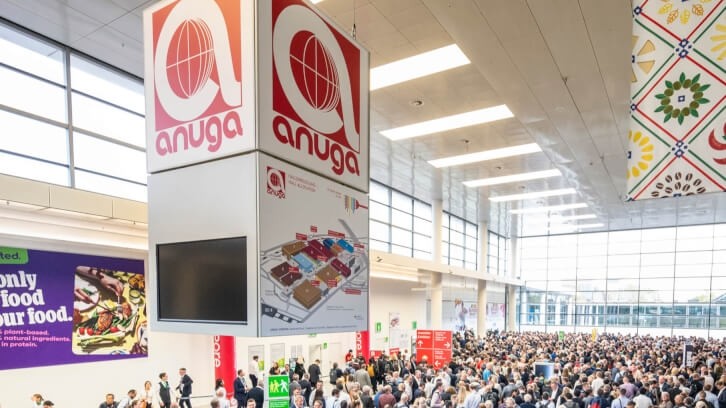
With global consciousness around environmental issues and consumers demanding more eco-friendly products, manufacturers are having to balance the need to be more sustainable with economic growth. But it’s not without its challenges.
This was the theme for the German-based trade show, Anuga, this year, which placed focus on the value of sustainable growth.
We at the Food & Drink Exporters Association (FDEA) organised stands for more than 80 UK producers for this year’s event, all looking to build sales from across the 140,000 international visitors. Regular established exhibitors joined new challenger brands in a strong UK showcase of innovative, well packaged goods, alongside an impressive raft of dairy and meat representatives.
How UK producers are approaching sustainable growth
Nurture brands
Sharing his thoughts on how to tread this tightrope without toppling, Adam Draper, managing director of Nurture Brands, a privately owned plant-based, sustainable, snacks and drinks business said it’s about doing the right thing.
“We own the brands, Rebel Kitchen that makes organic juices and coconut water, Emily Snacks that makes healthier vegetable-based crisps, and Doisy & Dam that makes sustainable vegan chocolate,” he said. “All of our brands are B Corp certified, give 1% of their net revenue to charity and are carbon neutral. In summary, we want to offer everyone a better, healthier, more sustainable option across snacks and drinks to replace the incumbent options that are not taking society in the right direction.”
The company’s focus on sustainability is threefold, Draper example.
Firstly, it is among the first generation of B Corps, with Rebel Kitchen being certified in 2016. “We care about more than just profit and doing the right thing by our people and the planet," he said.
Secondly, the company gives 1% of its net revenue to charities that align with purpose and mission of its brands. For example, Doisy & Dam supports orangutan preservation in Borneo, which is a species ravaged by the palm oil industry.
“Naturally we do not use palm oil in any of our products on any of our brands.”
Finally, Nurture Brands measures and offset its carbon footprint with carbon credits.
“It’s a bit of a minefield but is the best we can do given we do not own all our manufacturing sites,” he explained.
For its manufacturing sites it does own, it actively pursues renewable energy to make the sites as efficient and green as possible; for example, its organic juice factory gets >60% of its energy from its own solar panels.
“We don’t need to balance growth and sustainability like it is a trade-off; we see sustainability as growth. We believe that consumers want delicious products and brands that focus on trying to provide healthier, plant-based, clean-ingredient options, with more sustainable packaging, that use more renewable energy and invest back into charities and causes that relate to their business model. We think that is what the modern consumer wants, and by embracing sustainability we future proof our business. In the long term, the only business model will be a sustainable business model and those who think it is a trade-off, will be out of business within a decade.
“Our biggest issue is the use of single-use plastic packaging. Naturally, we would love everything to be fully recyclable and not use single-use plastics, but presently this is very hard to achieve on high-pressure processed juice products and on snacking products, where there needs to be an air-barrier.
“Where we can, we reduce the amount of packaging we use and seek to use RPET plastic, but this remains our greatest challenge as it is for the wider food and drink industry.”
From a category point of view, Draper said the challenge for smaller brands is exposure – getting in front of the huge FMCG giants that dominate the shelves in supermarkets.
“The grocers all have clearly stated targets regarding healthier diets and sustainability, and to bring those targets to fruition, they may need to look further than the brands that have been on the shelves for the last 30 years and embrace and support more of the upstarts like us!”
Doves Farm Foods
Fellow exhibitor Doves Farm Foods is a manufacturer of specialist and artisan flour as well as organic and free-from foods. A pioneer in these sectors, the business operates the brands, Doves Farm, Freee and Wessex Mill. Operating across all channels from retail to wholesale and manufacturing, the 45-year-old family-owned company has seen significant growth over the last five years, growing by 53%.
Speaking with its head of sales, Ben Chantrey explained that sustainability is a big part of the company’s ethos.
“Being sustainable is built into our DNA,” he said. “Doves Farm Foods was born out of a passion for creating better food from ingredients grown in a more planet friendly way. Our very first product was a wholemeal flour milled from organically grown grain – and we were among the first four businesses in the UK to achieve organic certification back in the seventies. Today, our Doves Farm brand is the number one organic flour brand in the UK and is also home to a range of organic biscuits and breakfast cereals.”
Chantrey said the company believes its focus on sustainability is what has helped it grow longer term.
“For our organic Doves Farm brand, we continue to support key periods in the calendar, such as Organic September, to educate consumers about the benefit to them and the planet. Our Wessex Mill brand is committed to sourcing its wheat grain from within a 50-mile radius of the mill, thus reducing the food miles incurred and supporting local Wessex farmers.”
The brand is also a pioneer in the gluten-free category and has been centred on these efforts for some time.
“More and more people are suffering from food allergies or intolerances. Our business was a leader in gluten free foods from early on; and in 2017, we created the brand Freee as a stand-alone gluten free brand. Today, it has a wide range of products within home-baking, breakfast cereal, snack bars and pasta. Recently, we launched a range of gluten-free portion sized breakfast cereals for on-the-go and breakfast-out occasions, and we have recently started supplying gluten-free cereal to packaging free stores.”
Walker’s Shortbread Ltd
Walker’s Shortbread Ltd are celebrating 125 years in business, still located where it all began in Aberlour, Speyside, Scotland. As an independent family concern to this day, the company is headed by the founder’s great grandchildren, who faithfully maintain the tradition of producing the finest shortbread, biscuits, cakes and oatcakes to original recipes using only the finest ingredients – a policy that has earned Walker’s a global reputation for quality and excellence.
Four times winner of the Queen's Award for Export Achievement, Walker’s Shortbread exports its distinctively packaged luxury bakery products to around 100 countries worldwide. In 2017 the company was granted a Royal Warrant of Appointment from Her Majesty the Queen for the supply of shortbread to the Royal Household, following the granting of the Royal Warrant of Appointment by the Queen and Queen Mother in 2002 for oatcakes. Quite an achievement and one that helps retain their global credibility.
All Walker’s shortbread is made using what it describes as 'only the finest ingredients possible’ and contains no artificial colours, flavourings or preservatives. It is also certified Kosher (OUD) and suitable for vegetarians.
Walker’s Shortbread operates four factories in Aberlour and two in nearby Elgin. Being one of the largest employers in a small area, the Walker family has developed a social responsibility and mutual inter-dependency with the local community. People are at the heart of its business, and it has always been natural for the company to operate in a caring fashion by looking after its workforce.
Alastair Walker, the organisation’s head of international sales, said: “Whilst sustainability is a topic everyone wants to know about it, we have been doing it for years, and it is something that we have embraced and continually tweaked as technology and our business evolves.
“We’re also very proud to provide complimentary bus travel for around 600 shift employees each day, to and from work, thereby reducing a huge number of road miles over the years.
“Walker’s is continually striving to develop strong social and environmental policies that ensure the company continues to meet the many international standards for product safety, whilst simultaneously protecting the environment and their workforce.
“One of our latest achievements is the reduction of almost 50% of plastics across our repackaged Global Travel Retail Range. This meets the needs of the consumers and our goal of reducing plastics in both primary and secondary packaging. Further within packaging, the cardboard for selected cartons is sourced through the Forest Stewardship Council to ensure sustainability.”
Belvoir Farms
Belvoir Farms make premium cordials and sparkling drinks at its farm in the beautiful Vale of Belvoir.
Speaking with Cath White, head of international at Belvoir Farm Drinks, she said: “We’ve been making drinks here for over 40 years, from traditional recipes created by the Manners family. Our signature recipe is Elderflower cordial, made from freshly picked flowers from local hedgerows. Our bottles and cans are 100% recyclable, and our bottles are also made from 71% recycled glass.”
Manufacturing in a sustainable way is at the heart of the brand. Some examples of the sustainability initiatives in place at the factory and surrounding farm include the installation of a 340 kWp solar photovoltaic array roof on the sunniest side of its factory. “This will offset up to 67,989 kgs of Co2 per year. To celebrate the launch, our lemonade bottles feature a nice slogan ‘made with sunshine’ and explain the process to consumers.”
Since 2017 Belvoir has also planted 10,000 trees in the surrounding area, including a specific area planted in celebration of the Queen’s Diamond Jubilee.
“We have 40 acres of Coppice Willow which is harvested each year for biomass use. In 2021 alone, we harvested 800 tonnes which went to replace fossil fuels,” she added.
“We have over 62 acres of land which is dedicated to producing oil rich winter bird feed. Owl boxes around the farm allow owls to nest, breed and feed throughout the winter months. We've planted 28 acres of flower rich margins around the farm, giving the butterflies, bees and pollinators somewhere to thrive.
“The rise in consumption of no or low alcoholic drinks has been a major influence on recent innovation. Our non-alcoholic cocktailed themed range launched in 2022 in glass bottles and cans, featuring Passionfruit Martini, Peach Bellini and Lime & Yuzu Mojito.”
Meanwhile, new HFSS rules have also guided its innovation this year, with the development of a range of recipes both in its sparkling range and cordial range.
“Our ‘Delicious & Light’ sparkling range contains less than 5g sugar and 20kcal per 100ml, presented in 330ml single cans and 4 x packs. On a similar theme, our ‘No Added Sugar’ trio of new cordials deliver sweetness from fruit juice and a touch of natural Stevia, to complement our traditional recipes.”
Sustainability is an opportunity
The FDEA regularly hosts insight sessions with our network of partners across the globe – and what is clear is that international retailers are looking for manufacturers with values that match their own. UK companies can tap into this growing demand by ensuring their own sustainability credentials are strong, transparent and in tune with those of their target customers.
Sustainability is an opportunity for innovation, efficiency, and long-term profitability. By embracing sustainable practices, implementing cost-effective solutions and engaging consumers, manufacturers can thrive in the global marketplace.
This shift toward sustainability isn't merely a choice; it's a strategic necessity. Today’s consumer is savvy. Greenwashers will soon be found out!
